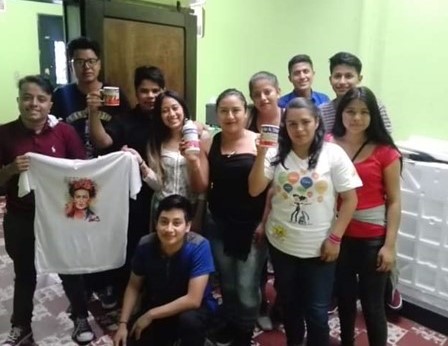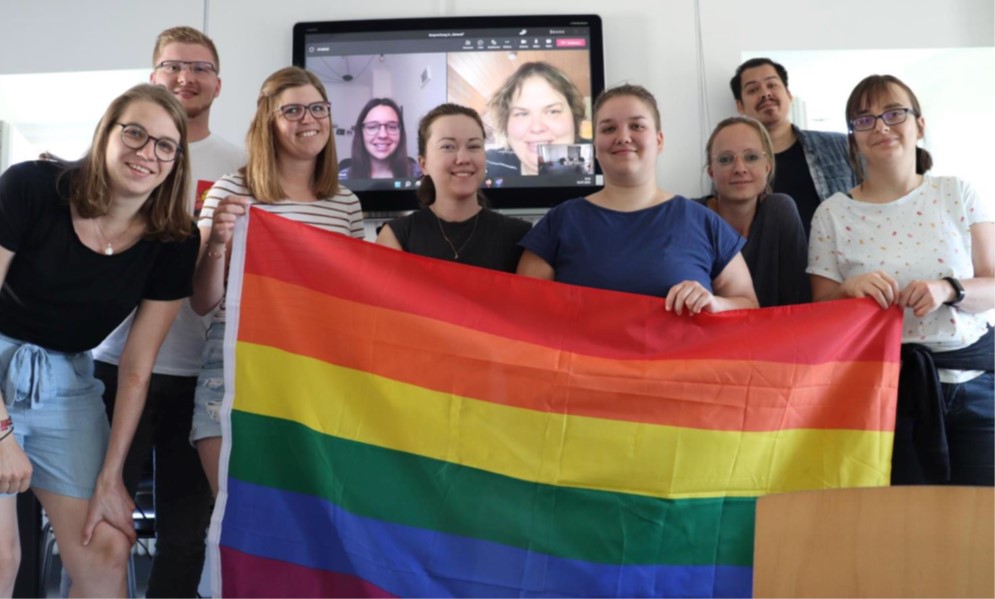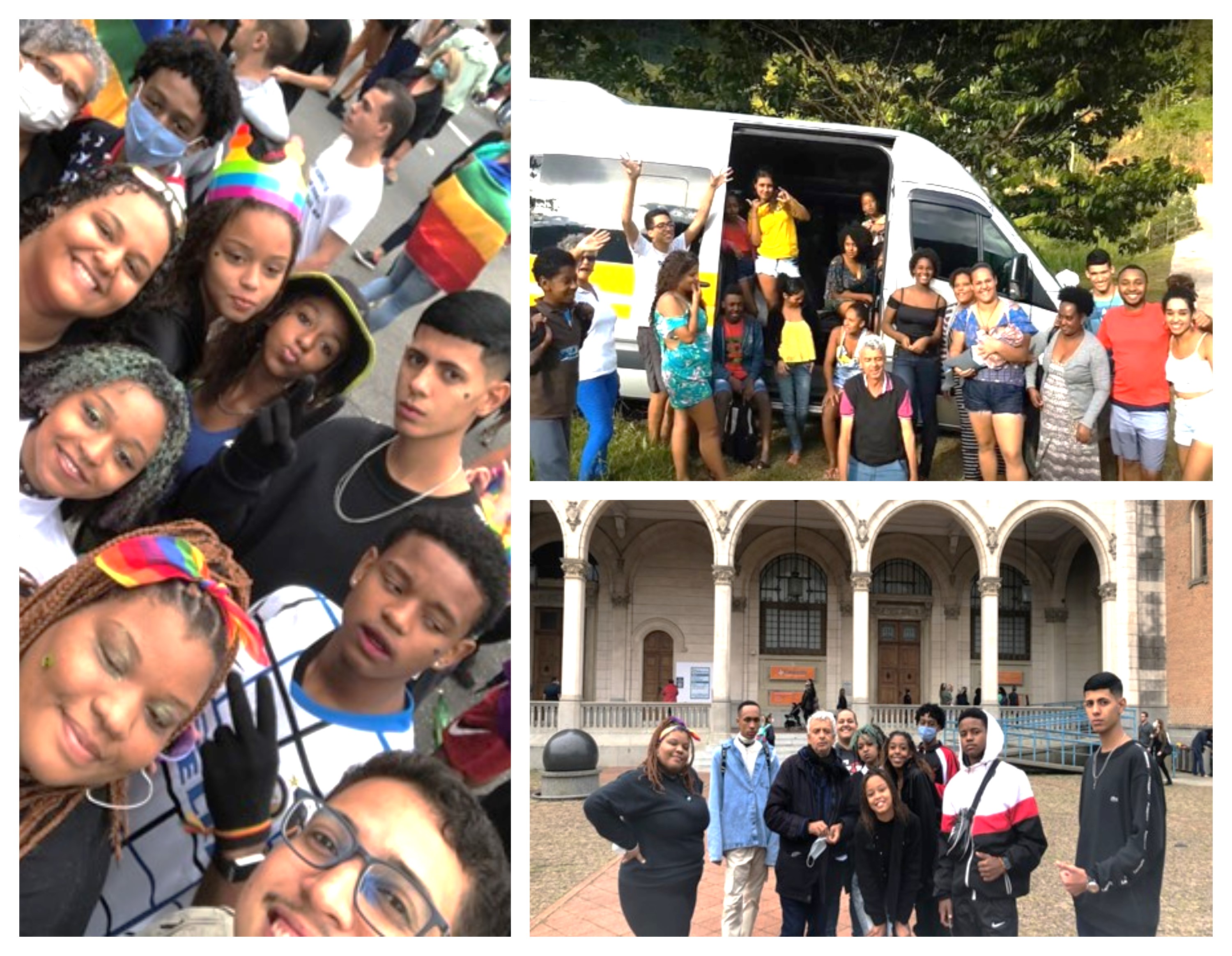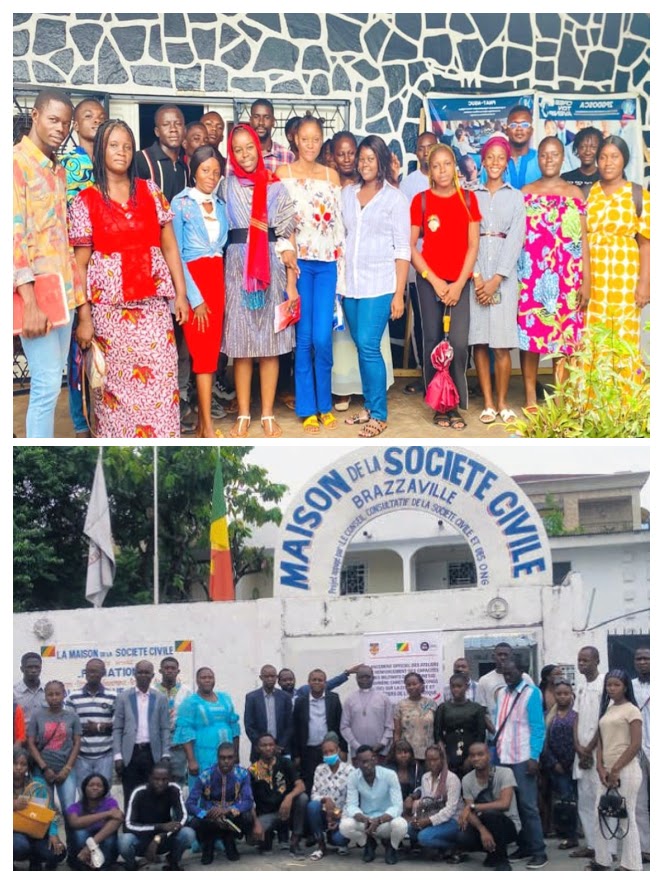Guatemala YCW: Training in screen printing and sublimation to give young people access to employment

Access to employment is one of the most fundamental rights, a guarantee of dignity and an essential means of subsistence for every human being. However, in a post-conflict country marked by poverty and low school enrolment, access to this essential right remains a distant goal. The Guatemalan labor market is almost entirely dependent on the informal economy, and the few formal jobs available are under constant threat from labor flexibility. Non-compliance with labor legislation, the weakness of labor-related institutions and the partisan politicization of access to employment exacerbate the job crisis. These problems are at the root of phenomena such as rampant crime and mass migration.

As in every other part of the world, gender inequality is a reality in Germany, a European country with a population of over 83 million. Before the German YCW held its National Action Days in 2017, the movement had already pinpointed gender as one aspect leading to inequalities in society and felt the need to deepen its analysis on the issue. Its concrete starting point was the reflection in its action group on precarious work, which had identified the connection between precarious work and gender. Decision was made to set up a national action group on gender equality.

In Mercedes, work is essentially dependent on the sea and its products. Economically speaking, fishermen's incomes are relatively low, and they can only provide for their families on a day-to-day basis. However, during the off-season (August-December), when weather conditions are unfavorable, they are out of work. Some are therefore forced to find alternative employment as carpenters or drivers in other localities.
There is no guarantee of income, security or safety in the fishermen's workplace. Their income depends solely on the fish they catch. Unfortunately, some of them suffer accidents and even death. Long working hours are also a feature of the job. Small-scale fishermen start work at 4:00 in the afternoon and finish at 6:00 in the morning the following day. Some go out to sea for 3 or 4 days and nights in a row.

In the city of Volta Redonda, south of Rio de Janeiro, living conditions are precarious, leisure and cultural facilities are lacking, and illicit trafficking and violence are frequent. In most families, the mother is the head of household. Most young people study in precarious public schools and also seek to supplement the income of the family network. Young people are the children of workers, mostly in the informal sector.

A community without leaders, a lack of interest from local residents in taking care of their neighborhood, many abandoned spaces - the central park, the municipal hall, the sports fields - occupied by outsiders who were using them for drugs and alcohol.
This was the situation five years ago in the working-class, self-managed district of Villa El Salvador, south of Lima. This reality was the starting point for action by young YCW members, who involved residents in reclaiming the area, transforming the neighborhood where they lived and changing the lives of young workers and community members.

"We are delighted with everything you have told us, it has opened our eyes and awakened our consciences, because we were in ignorance. The topics covered are necessary information/tools that will enable us to get by in society. We believe that the YCW is an ideal movement for awareness-raising and social integration." Makita Sanielle Chamelia

The International Week of Young Workers is celebrated every year by the International Young Christian Workers (IYCW) from the 24th of April to the 1st of May. It was first celebrated in 1970 as the National Week of Young Workers by the Brazilian YCW.
In 1983 during the International Council of IYCW in Madrid Spain, the International Week was adopted as one of the main events at the international level. Since then, the IYCW promoted it in all countries where it is present as a training, organizational, and demanding means for young workers. During this week, the young workers conduct different activities to share and analyse their situations, express their convictions, strengthen friendship, and participate in actions to claim their rights. Therefore, this week ends up with May 1st demonstrations, which will be organised virtually this year.
The working class in Brazil is suffering from serious setbacks that affect everyone especially the youth. Facing the current scenario, we are called to unify our voices and actions. As a mark of this challenge, we invite all young people and all people in solidarity with our struggle for life and decent working condition to join us in prayer:
"Jesus, I offer you this day, my work, difficulties and struggles, my joys and hopes. Grant us, as young people who are training for professional life, that we are looking for work or have work, awareness of our dignity, rights, and our responsibilities. Grant us the grace to witness our love for life and for what is honest and just, the daily dedication to our union and organization, and wisdom to act collectively for a dignified life and working condition. Grant us, at last, fidelity to the mission of working for the Kingdom that is yours, today and forever" - Reginaldo Andrietta, Bishop of Diocese Jales Brazil.
As described by Bishop Reginaldo Andrietta, after 36 years since the establishment of the International Week of Young Workers in the 6th International Council of IYCW in the city of Madrid, today the International YCW continues to develop its struggle through actions " by, among and for young workers, with the aim of achieving a more just and dignified world. During this International Week from April 24 to May 1, we, the activists of International YCW, would like to invite all young workers around the world to continue our struggle and resist against the new challenges we will face after the spread of the COVID19 global pandemic.
Once again, the International YCW is raising its voice to have a:
"Just work, equality, and a dignified life for all young workers around the world."
The International Secretariat of the IYCW
- YCW Wallonia-Brussels is standing up against fascism and racism
- 15 March 2019 — Charleroi, Belgium: Demonstration Against Repression
- Salt for Dignity through Solidarity - YCW Haiti’s action presented
- Young Christian Workers in Egypt redefined Their Future Life and Work
- Young Workers March to Berlin on May Day Celebration
- March 15, 2017: “Just Work, not Bullets”
- Young People of Flanders Speak Up and Are Ready to Act!
- The Bicycle Rally of the India YCW
- YCW Egypt struggles against sexual harrassment
- KAJ Flanders: Stop the Train of Temporary Work Abuses



